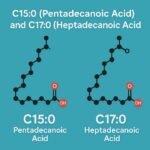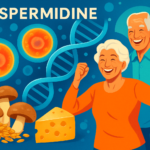Introduction:
In the realm of health diagnostics, understanding biomarkers can be crucial for early detection and prevention of various ailments. One such biomarker that has gained significant attention is high sensitive C-reactive protein (hs-CRP). This article delves into the depths of hs-CRP, shedding light on its importance, interpretation, and implications for overall health.
Exploring the Significance of High Sensitive C-Reactive Protein:
High sensitive C-reactive protein, commonly abbreviated as hs-CRP, is a vital biomarker used to assess inflammation within the body. Unlike traditional CRP tests, hs-CRP tests can detect even minor elevations in CRP levels, making it a more sensitive indicator of inflammation.HS-CRP tests can help on early detection of Cardiovascular Risk: Elevated levels of HS-CRP indicate inflammation in the body, which is linked to an increased risk of heart diseases, including heart attacks and strokes.
Understanding the Role of Inflammation in Health:
Inflammation is the body’s natural response to injury or infection. However, chronic inflammation can contribute to various health conditions, including cardiovascular disease, diabetes, and certain cancers. Monitoring hs-CRP levels can provide valuable insights into the presence of chronic inflammation and associated health risks.
Factors Influencing Hs-CRP Levels:
Several factors can influence hs-CRP levels, including age, gender, smoking status, obesity, and underlying health conditions. By addressing modifiable risk factors such as smoking cessation, weight management, and regular exercise, individuals can help lower their hs-CRP levels and reduce inflammation.
Interpreting Hs-CRP Levels:
Interpreting hs-CRP levels requires an understanding of the reference ranges and associated risk categories.
Reference Ranges and Risk Categories:
- Low Risk (Below 1.0 mg/L): Individuals with hs-CRP levels below 1.0 mg/L are considered to have a low risk of cardiovascular disease.
- Intermediate Risk (1.0-3.0 mg/L): Hs-CRP levels between 1.0 and 3.0 mg/L indicate an intermediate risk of cardiovascular disease, warranting further evaluation.
- High Risk (Above 3.0 mg/L): Hs-CRP levels above 3.0 mg/L are associated with a high risk of cardiovascular disease and may indicate the presence of underlying inflammation.
Clinical Implications:
Elevated hs-CRP levels may prompt healthcare providers to recommend additional diagnostic tests, lifestyle modifications, or pharmacological interventions to mitigate cardiovascular risk and reduce inflammation.High-sensitivity C-reactive protein provides accurate epidemiological data on chronic sickness (chronic obstructive pulmonary disease), auto-immune disorders (rheumatoid arthritis) and viral infections (influenza). A routine hs-CRP marker test helps thwart sudden myocardial infarction among healthy individuals without a history of heart ailments.
Impact of Lifestyle Modifications on Hs-CRP Levels:
Making positive lifestyle changes can help lower hs-CRP levels and reduce inflammation, thereby decreasing the risk of cardiovascular disease and other inflammatory conditions.
Dietary Strategies:
Consuming a diet rich in anti-inflammatory foods such as non-sugary fruits, green vegetables, and fatty fish can help lower hs-CRP levels. Conversely, reducing intake of processed foods, sugary beverages, and trans fats may help mitigate inflammation.
Physical Activity:
Regular physical activity has been shown to lower hs-CRP levels and reduce inflammation. Engaging in aerobic exercise, strength training, and flexibility exercises can have profound effects on hs-CRP levels and overall health.
Stress Management:
Chronic stress can contribute to inflammation and elevate HS-CRP levels. Practising stress-reducing techniques such as mindfulness, meditation, yoga, and deep breathing exercises can help modulate the body’s inflammatory response.
High Sensitive C-Reactive Protein: FAQs
Q: What factors can affect hs-CRP levels?
A: Hs-CRP levels can be influenced by various factors, including age, gender, smoking, obesity, and underlying health conditions.
Q: How is hs-CRP measured?
A: Hs-CRP levels are typically measured using a blood test that quantifies the amount of CRP in the bloodstream.
Q: What are the implications of elevated hs-CRP levels?
A: Elevated hs-CRP levels may indicate increased inflammation within the body, which can contribute to various health conditions, including cardiovascular disease. Its an predictive of a myocardial infarction, stroke, peripheral vascular disease, and sudden cardiac death,
Q: Can lifestyle changes lower hs-CRP levels?
A: Yes, adopting a healthy lifestyle that includes regular exercise, a balanced diet, stress management, and smoking cessation can help lower hs-CRP levels.
Q: Are there medications that can lower hs-CRP levels?
A: In some cases, healthcare providers may prescribe medications or anti-inflammatory drugs to lower hs-CRP levels and reduce cardiovascular risk.
Q: How often should hs-CRP levels be monitored?
A: The frequency of hs-CRP testing may vary depending on individual risk factors and health status. Healthcare providers can determine the appropriate monitoring schedule for each patient.
Conclusion:
High sensitive C-reactive protein serves as a valuable biomarker for assessing inflammation and cardiovascular risk. By understanding hs-CRP levels and implementing lifestyle modifications, individuals can take proactive steps to improve their health and reduce the risk of inflammatory conditions. Remember, knowledge is power when it comes to managing hs-CRP levels and promoting overall well-being.










